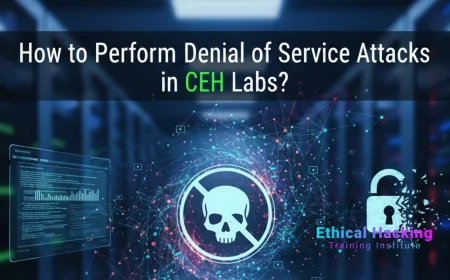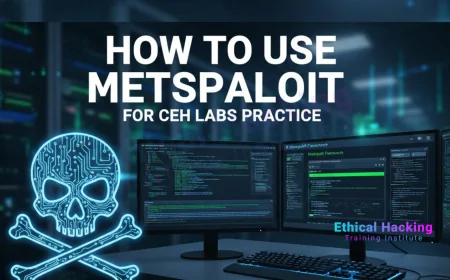Find Ethical Hackers Near You: Best Local Training and Career Resources | Ethical Hacking Training in Your Area: Build Skills, Get Certified, Find Jobs
Looking to become an ethical hacker? Discover the best local training centers, certification programs, mentorships, and career support resources near you. Start your cybersecurity journey with expert guidance and hands-on learning.

Table of Contents
- Introduction
- Why Find Local Ethical Hackers?
- Top Local Training Centers
- Mentorship & Community Programs
- Local Events & Workshops
- Building Industry Connections
- Essential Skills & Learning Path
- Certification Routes & Value
- Job Placement and Internship Help
- Cost Considerations
- Hybrid: Blending Local & Online Learning
- How to Choose the Right Program
- Local Success Stories
- Frequently Asked Questions
- Conclusion
Introduction
Finding ethical hackers and cybersecurity training near you can accelerate your learning and enhance career opportunities. This guide highlights top local resources—training centers, mentorship programs, community events, and job support services—to help you kickstart or elevate your cybersecurity journey.
Why Find Local Ethical Hackers?
- Personalized Guidance: Live feedback from certified professionals accelerates understanding.
- Accountability: Regular classroom or workshop schedules promote consistent learning.
- Hands-On Labs: On-site or virtual lab setups allow real-time support.
- Networking: Peer interaction leads to collaborations, study groups, and career connections.
- Placement Support: Some centers partner with companies and offer internships or job assistance.
Top Local Training Centers
Here's what to consider when evaluating training centers:
- Accreditation: Look for EC-Council ATCs or Offensive Security resellers.
- CEH & OSCP Courses: Official or recognized local CEH and OSCP programs.
- Lab Facilities: Virtual labs or on-site environments with Kali Linux and cybersecurity tools.
- Mentor Quality: Trainers with real-world pentesting or security consulting experience.
- Placement Record: Graduate success stories with job placements or internships.
For example, WebAsha in Pune and [Your Local Center] offer a mix of live labs, structured courses, and career guidance.
Mentorship & Community Programs
Connecting with local mentors can be as impactful as formal training:
- University Clubs: Campus cybersecurity clubs hosting hackathons and study groups.
- Meetups: Monthly or bi-weekly ethical hacking meetups via Meetup.com or Facebook.
- Sponsored Mentors: Some bootcamps connect learners with experienced ethical hackers for guidance.
- Local Chapter Events: OWASP chapters and BSides conferences offer mentorship and networking.
Local Events & Workshops
- Workshops: Short weekend sessions focused on tools like Metasploit, Burp Suite.
- Conferences: Low-cost local InfoSec events like BSides, DEFCON groups.
- CTFs: Capture-The-Flag competitions hosted by universities or hack clubs.
- Hackathons: 24–48-hour coding and hacking marathons with real scenarios.
Building Industry Connections
Networking can unlock job opportunities:
- Attend panel discussions and career fairs hosted by training organizations.
- Join local LinkedIn or Slack groups for ethical hackers and security analysts.
- Volunteer at cybersecurity workshops to meet professionals.
- Follow shared job openings or group referrals within communities.
Essential Skills & Learning Path
A solid training program should cover:
- Networking fundamentals (TCP/IP, DNS)
- Linux and Windows system administration
- Web hacking techniques (SQLi, XSS, CSRF)
- Wireless and mobile security testing
- Scripting (Python, Bash, PowerShell)
- Report writing and communication skills
- Security tools (Nmap, Burp, Metasploit, Wireshark)
Certification Routes & Value
- CEH (Certified Ethical Hacker): Broad-based entry-level certification with lab practice.
- OSCP: Considered a gold standard for hands-on pentesting.
- PenTest+: Vendor-neutral certification from CompTIA.
- eCPPT: Web-focused penetration testing credential.
Choose the certification that aligns with your goals—penetration testing, red teaming, or cyber defense roles.
Job Placement and Internship Help
Some local providers offer placement support through:
- Resume reviews and mock interview sessions
- Recruiter referrals and employer demo-days
- Partnerships with local IT firms and government organizations
- Internships or project-based apprenticeships with mentorship
Cost Considerations
Compare price points:
- Workshops: ₹5k–15k / $50–200
- Bootcamps: ₹40k–₹120k / $500–3000
- Certification Packages: CEH+OSCP bundles ₹60k–₹200k / $1200–4000
- Mentorship Subscriptions: ₹10k–25k / $100–300 monthly
- Event Fees: CTFs and meetups can be free to ₹2k / $30
Hybrid: Blending Local & Online Learning
Combining local instruction with online resources offers flexibility and depth:
- Attend weekend instructor-led labs locally
- Use platforms like TryHackMe or HTB for independent lab practice
- Access webinars and recorded lectures from global experts
- Use Discord groups for ongoing Q&A beyond class hours
How to Choose the Right Program
- Identify your goal: certification, job-readiness, or advanced pentesting
- Check trainer credentials and alumni reviews
- Evaluate lab quality and access duration
- Look for built-in job support or community engagement
- Balance cost, schedule, and commitment needed
Local Success Stories
Hearing real examples helps:
- From Pune, many WebAsha alumni landed cybersecurity roles within 2 months of completing CEH and OSCP training.
- In [City], a small workshop cohort collaborated on a CTF and placed top 5 in national competition.
- Local high schoolers using CTFs to build portfolios and gain college cybersecurity scholarships.
Frequently Asked Questions (FAQs)
1. How do I find ethical hacking courses in my city?
Search for accredited training centers, university clubs, and Meetups that host cybersecurity events.
2. Is local training better than online?
Local training offers mentorship and networking, while online provides flexibility—hybrid often delivers the best of both.
3. What should I expect from workshops?
Hands-on tool demos, vulnerability labs, and instructor Q&A over 1–2 days.
4. Are internships included in training packages?
Some providers offer short-term projects or connections to local firms—ask before enrolling.
5. Do local programs offer CEH vouchers?
Many certified training centers bundle the CEH exam voucher with their programs.
6. How much do local courses cost?
Workshops: ₹5k–15k; Bootcamps: ₹40k–₹120k; Certification programs: ₹60k–₹200k.
7. What is a hybrid course?
A program that combines in-person labs or lectures with online content and virtual mentoring.
8. Can workshops prepare me for certifications?
They help introduction, but full certification prep requires deeper study and labs.
9. How do I verify a trainer’s credentials?
Check EC-Council, Offensive Security, or CompTIA affiliations and alumni reviews.
10. Is local networking valuable?
Yes. Peer support, referrals, and real-world collaboration come from local engagement.
11. Can I start without an IT background?
Yes—beginner workshops and foundational courses ease you into the field.
12. What tools are used in labs?
Common tools include Kali, Nmap, Wireshark, Metasploit, Burp Suite, sqlmap, and more.
13. How long do bootcamps last?
Typically 1–2 weeks for full-time bootcamps; part-time versions run 4–12 weeks.
14. What certifications are offered locally?
CEH, OSCP readiness, PenTest+, and eCPPT are commonly offered by accredited centers.
15. Should I pick CEH or OSCP first?
CEH is ideal for broad introduction, while OSCP focuses on deep, hands-on penetration testing.
16. Do local groups host CTFs?
Yes—many Meetups and university clubs organize in-person or hybrid CTFs.
17. Is lab access ongoing?
Most providers grant 3–6 months of lab access; verify extension options before enrolling.
18. How do I stay motivated?
Set milestones, join peer groups, compete in CTFs, and celebrate progress.
19. What jobs can follow local training?
Roles like Security Analyst, Penetration Tester, Intern, or SOC Associate are common entry points.
20. What is the first step I should take?
Attend a free webinar or workshop to evaluate teaching style and lab quality before committing.
Conclusion
Finding ethical hackers and local training resources near you provides the mentorship, structure, and networking foundation that online-only pathways can miss. Whether you're seeking certification, hands-on labs, or career support, building local connections accelerates your growth. Combine local guidance with hybrid learning to customize a journey that aligns with your goals and opens doors to cybersecurity roles.
What's Your Reaction?
 Like
0
Like
0
 Dislike
0
Dislike
0
 Love
0
Love
0
 Funny
0
Funny
0
 Angry
0
Angry
0
 Sad
0
Sad
0
 Wow
0
Wow
0

















